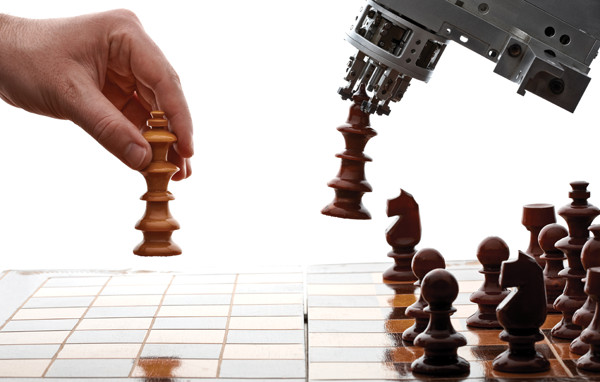
by Jacob Haqq-Misra Friday, October 31, 2014

Credit: ©Shutterstock.com/Daniel Schweinert.
Editor’s Note: We asked our staff and some frequent contributors to write a short commentary on something that they had been thinking about in 2014. We gave everyone carte blanche. What follows is a collection of extremely varied, often very personal insights into how the planet impacted each individual.
I started playing chess again this year. I learned to play early in elementary school, and I finished high school as the captain of our chess team. During college and graduate school I found fewer opponents for friendly games, and I lost my connection with the world of competitive chess. I have since reflected that, thanks to knowledge acquired since high school, I could potentially become much better at the game than I was then, so I recently set out to find a local chess club at which to dust off and maybe even improve on my past ability. I found a club near my home that features a number of players much better than I, and their willingness to share their knowledge has already helped my game tremendously.
When people discover that I work as a scientist and also play chess, many readily conclude that my background in science must somehow enhance my abilities at the game. Such reactions typify the misconception that chess skill can be reduced to the mathematics of calculus or geometry, or that a person with strong academic credentials will be able to improve their game through sheer study alone. Chess does involve aspects of numerical and geometrical pattern recognition, and good study habits are an asset for any serious chess player. Yet these habits aren’t sufficient to make someone a gifted chess player. To suggest that scientists inherently make good chess players is about as correct as suggesting sailors must make good tank drivers: The few transferable skills are insufficient to ensure mastery.
Admittedly, some aspects of my game have been easier to improve than others; I cannot deny, for instance, that my background in computational science helps me analyze my own matches. I have a more keen sense of awareness of patterns in my own play than I did in high school, which allows me to target my own weaknesses and focus my efforts accordingly. I have always had the patience to contemplate complicated chess patterns over the course of lengthy games, a skill that probably has benefited me both in science and chess.
Yet my biggest weakness in chess is managing the psychological aspect of the game and the resulting physical manifestations. Quite often if I am winning a game, my heart pumps harder as my adrenaline increases, sometimes further fueled by looks of frustration on my opponent’s face, and I find that I become more prone to making careless mistakes. Sometimes this overconfidence will lead to a loss; sometimes I have been able to respond rationally by actively slowing my breathing. Other times I will notice the reverse, where my defensiveness due to an overly aggressive opponent will physically heighten my calculating senses and ultimately lead me to victory. Gaining mastery over the psychological component of the game has few ties to skill at science — other than that one shouldn’t let emotion get too involved in his or her science either — but can only be achieved through practice and confidence.
Sometimes I reflect upon chess as a microcosm for the battles of daily life. Our adversaries can be more or less aggressive, and we must often carefully weigh the consequences of our actions many steps into the future before we make decisions. Sometimes a passive, waiting move is the best course of action, while other times we can simultaneously provoke and protect to reach complex situations — in chess and in life — that require deep reflection before moving forward. Chess may not create better scientists, and science may not make better chess players, but the pursuit of chess itself — like many sports — can provide real opportunities to build character for people in all walks of life.
© 2008-2021. All rights reserved. Any copying, redistribution or retransmission of any of the contents of this service without the expressed written permission of the American Geosciences Institute is expressly prohibited. Click here for all copyright requests.